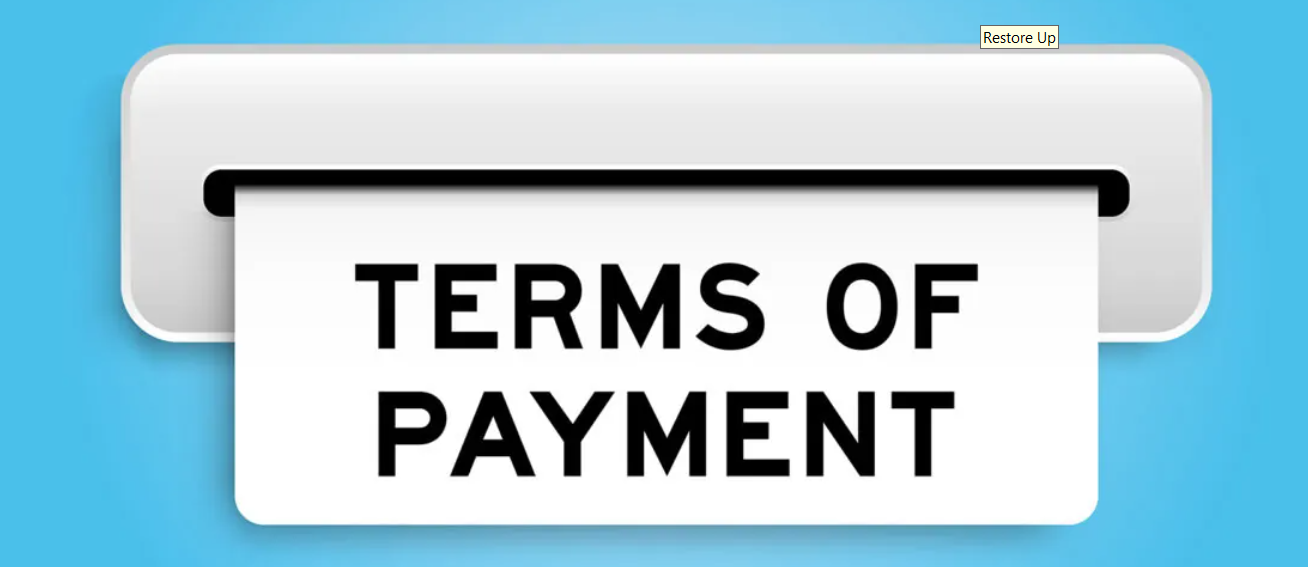Anytime money exchanges hands, it’s critical that there is a clear understanding between both parties. The last thing you want in a payment transaction is a misunderstanding.
That’s where payment clauses come in. You can think of these terms as rules that tell your customer when and how to pay.
For small businesses, these rules are essential. They help you avoid problems like late payments or payment disputes. By understanding and using good payment clauses, you can protect yourself from these issues and, often, get paid faster.
In this article, we’ll define payment term clauses and explore their importance.
You’ll learn about the different clause term types and how to choose the ones you need for your payment agreement. Then, we’ll give you examples and offer tips for getting paid on time.
Let’s dive in!
What Is a Payment Term Clause?
Payment term clauses aren’t just legal jargon. They’re the details that ensure everyone is on the same page about payment for services.
These clauses are the rules you write on your invoice to explain how and when a customer should pay you. The terms tell your customers things like when the payment is due. For example, “net 30” means they have 30 days to pay. They also say what ways you accept payment, like credit cards or bank transfers.
These terms set expectations so there’s no confusion. For instance, saying “payment due upon receipt” tells your customers they must pay immediately. Such statements make everything clear, so there are no misunderstandings.
Also, payment terms can state if there are any penalties, such as late fees. These terms let the customer know what happens if they don’t pay on time. When combined, the payment term clauses keep your cash flow moving and protect your business.
RELATED ARTICLE — What Are Payment Terms? (With Examples)
The Importance of Payment Term Clauses for Small Businesses

Why do small businesses need to worry about payment term clauses? They might seem like extra details, but they can make a big difference in how smoothly your business runs.
First, clear payment terms help you get paid on time. When your customers know exactly when and how to pay, there’s less confusion and fewer delays.
The clarity helps you get your money faster. This ensures the cash flow your business needs to keep operating. A steady flow of money helps you pay your bills and have capital to grow your business.
Second, payment terms help prevent arguments and disagreements. If everything is written down clearly, there’s less chance of misunderstandings. For example, if you have a clear late fee policy, customers know what to expect if they pay late.
Finally, having clear payment conditions protects your business. You don’t have to worry about taking legal steps to get paid. If you have to hire a lawyer to get paid, the payment term clauses can be evidence supporting your claim.
Without clear payment agreements, the process will be much more difficult.
Types of Payment Term Clauses
Now that you know why payment terms in a contract are important, let’s look at the different types you can use. Each clause covers the various aspects of payment.
Here are the clauses that could be helpful for your business:
- The payment due date clearly states a deadline for payment. You can use a specific date or a term like net 15, net 30, or net 45.
- The accepted payment methods section defines how customers can pay. Options include credit cards, bank transfers, and online payment platforms. Offering multiple options makes it easier for customers to pay you.
- The currency and authorized payments clause indicates the currency for payments (e.g., USD, EUR). It can also tell customers about any restrictions on payment methods or locations.
- The late payment fees clause explains what happens if a payment is late. Penalties might include a percentage-based fee or a fixed amount. The goal is to encourage timely payments.
- A payment of taxes clause clarifies who is responsible for paying any applicable taxes, such as sales tax or VAT.
- A cancellation policy outlines the terms for canceling an order or service, including any fees or refunds. This is especially important for subscription-based businesses or services with upfront costs.
- The returns and refunds clause describes your policy for returns and refunds. It should include conditions or time limits. Payment disclaimers, such as “all sales final,” should be included in this clause.
- A subscriptions and fees clause explains recurring fees, billing cycles, and any terms for changing or canceling subscriptions.
- The payment disputes section describes how payment disagreements will be handled. It may include information about mediation or arbitration. This clause aims to provide a clear process for fixing disagreements.
Together, these term clauses can help you avoid complications and get paid on time.

